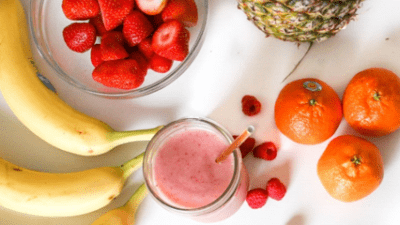Vitamin B plays an essential role in maintaining a healthy body, including producing energy and supporting cell growth and development. Vitamin B is a complex of eight different vitamins, each with its unique benefits for the body. While some of them are present in foods we eat daily, our bodies cannot produce them, and we need to obtain them through food or supplements. In this article, we will discuss the types and benefits of vitamin B for a healthy body.
1. Energy Source and Nervous System Health
Vitamin B1 or thiamin is essential for the proper functioning of the nervous system and converting food into energy. It also supports your body’s immune system, helping it to fight infections. Some of the foods that are rich in thiamin are eggs, beef, dairy products, and grains.
2. Eye and Skin Health
Vitamin B2 or riboflavin helps in breaking down proteins, fats, and carbohydrates, supporting eye and skin health. It also helps in energy production and supports the immune system. Some of the foods that are rich in riboflavin include eggs, milk, yogurt, green leafy vegetables, and almonds.
3. Nervous System Function
Vitamin B3 or niacin plays a crucial role in the proper functioning of the nervous system and helps convert food into energy. It is also necessary for healthy skin, digestive system, and the production of hormones in the body. Some of the foods that are rich in niacin are fish, poultry, beef liver, peanuts, and legumes.
4. Hormone Production and Growth
Vitamin B5 or pantothenic acid stimulates hormone production and supports healthy growth. It also aids in breaking down fats, carbohydrates, and proteins found in food. Some of the foods that are rich in pantothenic acid include broccoli, dairy, eggs, and lean meats.
5. Metabolism Support
Vitamin B6 is essential for healthy metabolism, and it helps in producing enzymes and proteins that regulate bodily functions. It also aids in the production of red blood cells and breaking down homocysteine, an amino acid linked to heart disease. Some of the foods that are rich in vitamin B6 are poultry, fish, potatoes, and bananas.
6. Fat and Carbohydrate Breakdown
Biotin or vitamin B7 helps in breaking down fats and carbohydrates in the body and converts them into energy. It also contributes to healthy skin, hair, and nails. Some of the foods that are rich in biotin include egg yolks, liver, whole grains, and soybeans.
7. Red Blood Cell Production
Vitamin B9 or folic acid is essential for the production of red blood cells and the prevention of birth defects in babies. It also supports brain health and cognitive function. Some of the foods that are rich in folic acid include leafy green vegetables, citrus fruits, and legumes.
In conclusion, maintaining a balanced diet is crucial to getting the right amounts of vitamin B that your body needs for optimal health and well-being. While supplements are available, consuming whole foods is the best way to get the nutrients your body needs. If you are unsure about your vitamin B levels and whether you are getting enough from your diet, talk to your healthcare provider about your options.




